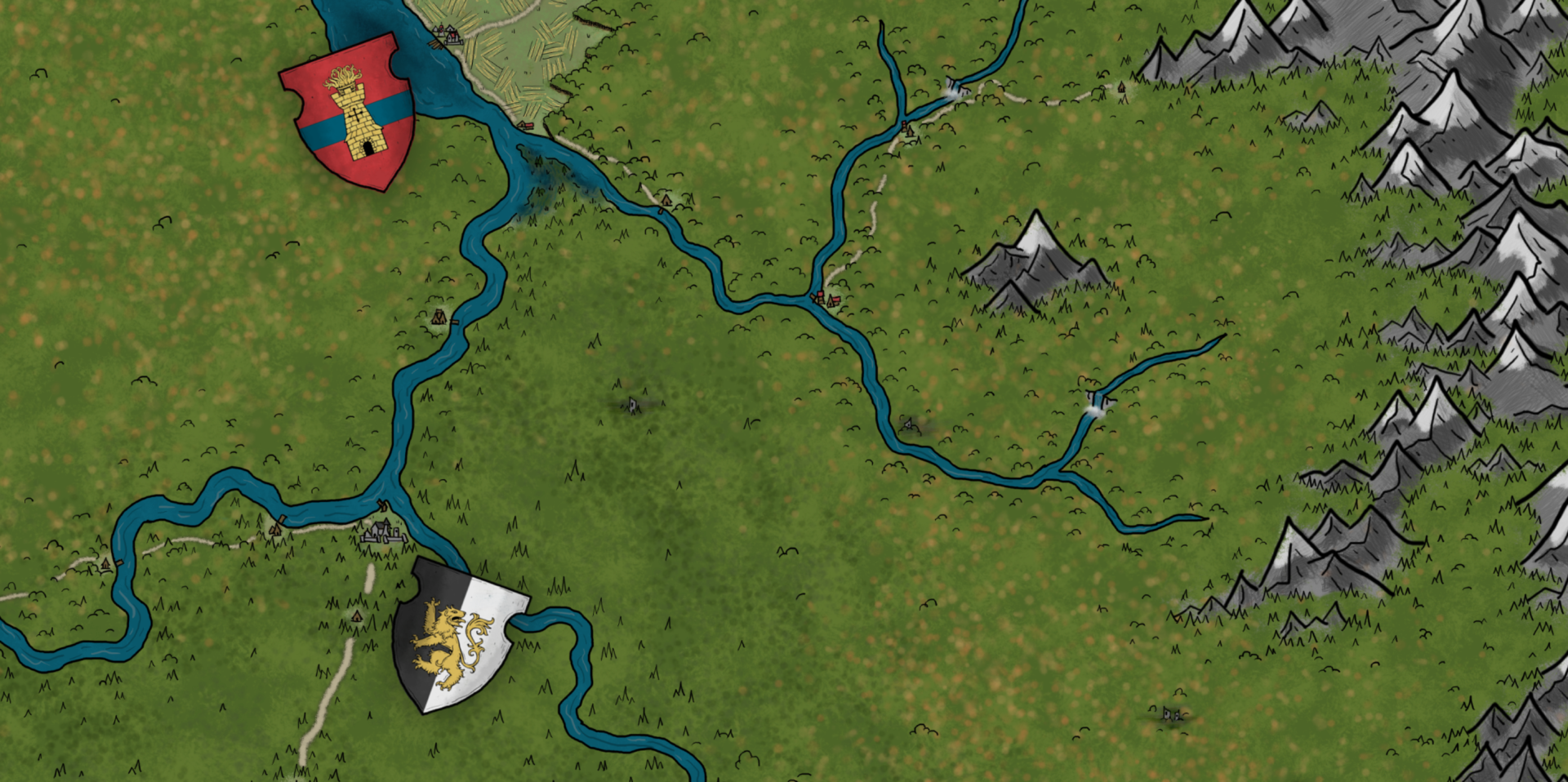Saturday was a big gaming day for me, from the bright-and-early game of East Texas University to the game that closed out my night, Dowrenland: Down the Yellow Road. Jeremy Lilley created this one shot for BrigadeCon 2016, an online con raising funds for Child’s Play, the gaming philanthropy. Children’s hospitals can be a joyless place, but Child’s Play works to provide games and activities during their stay. Check it out if you haven’t already, and please consider donating. BrigadeCon raised over $2000 this year but every little bit helps.
Jeremy (known as Erasmas in some places online) created Dowrenland as a mashup of Alice in Wonderland and The Wizard of Oz, with enough creative flair to keep it from being a pure copy of the two. There are rumors of an evil alliance between the King of Spades in the west and the dreaded Queen of Hearts in the east. The Queen of Diamonds and King of Clubs commanded us to go to the land of the tin golems, in the hopes that we might recruit them in the coming war. Throughout the one shot, Jeremy’s attention to detail really helped to show us the whimsy and strangeness of the world.
Less is More
Maybe inspired by Tolkien, many worldbuilders tend to develop a huge amount of information for their settings. We’ve got access to thousands upon thousands of words about geography, history, politics, religion, and culture. Established settings like Faerûn or Golarion have had year to build up their lore. They weren’t sparse to begin with, but these worlds get more detailed with every new supplement and adventure path. Looking to these examples, the impulse for aspiring worldbuilders is often to write those thousands and thousands of pages. This is a burden on anyone who plays the setting, but there’s a better way.
In Down the Yellow Road, we started off on a battlefield, hunkered down behind a mound of bodies to shelter from enemy arrow fire. Safe behind a wall of their card-motif shields, the Red Queen’s soldiers had devastated the battlefield. The arrows shrunk their targets down to the size of mice and sure enough, we all got shrunk trying to escape. What can only be described as a clockwork butler scooped a few of us up to carry us to safety. They were allowed inside the automaton’s casing, where they saw his power source: a hamster wheel with a small, mechanical hamster in pieces beside it. The players had to repair the hamster, and power the wheel themselves in the meantime.
First, this was a great task for the players while we were basically in full retreat. It was also a small touch that said a lot about the world. The Red Queen’s army taught us the world is gritty and stylized. Kittok (the clockwork automaton) taught us the world is magical, technological, and whimsically impractical. He also taught us that the perils of this world could be turned to our advantage. We weren’t getting away from that rain of arrows as full-sized characters, but when we were tiny we could fit inside (and, fortunately, power) a glorified tank.
Learn as You Go
In my post about session zero, I said the goal of my worldbuilding and game prep is robust simplicity. I strive to communicate a complex world as clearly as Jeremy did in Down the Yellow Road, and I strive to do it from the opening moments of each game. I have the general arc of a setting in mind, but I’d rather reveal it to you bit-by-bit during gameplay than imply you should read it all in the book before playing. Maybe it’s a sentence of lore attached to loot, or maybe it’s woven into the plot details of a session or two. I want setting information to come in easily-digestable packets in the course of what we gather to do: play the game.
How do you handle “fluff” in your setting and games? Do you think complex worldbuilding has more appeal than I give it credit?


One thought on “Robust Simplicity”
It is definitely hard to get that balance right between showing the world and not overloading the players with information . . . and I do not think I have ever gotten that balance quite for my Sea of Stars campaign.
Comments are closed.